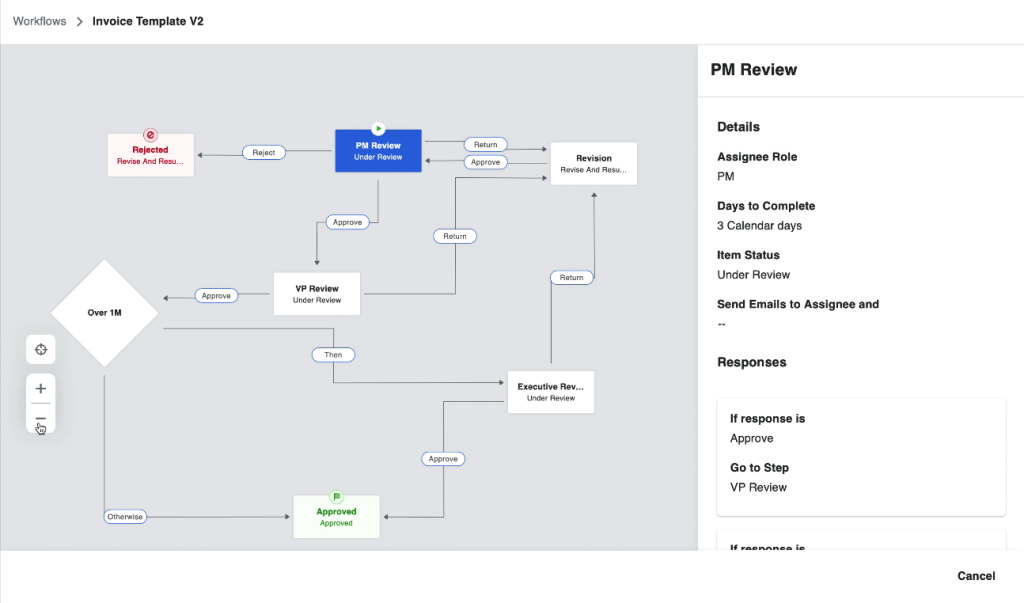After attending Groundbreak, the virtual user conference hosted by Procore, it is clear that the eventual digitalization of construction processes is top of mind for many AEC professionals. To accomplish the goals of sustainability, efficiency and even employee safety, it has become imperative that the construction industry move past its paper, clipboard and spreadsheet ways.
We caught up with Wyatt Jenkins, SVP of product at Procore to learn how they are approaching the digitalization of construction, and how new technologies are being leveraged to make the transition even easier.
According to Jenkins, Procore began its journey building tools for construction and built their comprehensive platform from there. This growth has allowed them to pursue the goal of being the single source of communications, records, and “truth” about building processes throughout the entire construction workflow. With more than 30 different tools within Procore, there are few tasks on a jobsite that are not covered by their offerings.
Facilitating Custom Workflows
Being comprehensive is no small undertaking, but there are still construction firms and professionals in the field that don’t think that that type of technology is necessary - especially given that they’ve been doing the job the same way for decades. But the hesitation in adopting a given software at its core may lay in how inherently different each job site or project can be from the previous project. For Jenkins, the answer to this is a guiding principle: flexibility.
“Most construction is custom. Every company we meet has their own business process. Just because it’s an RFI, it could be different from one company vs. another company. We have a whole division at Procore allied the Flexibility Divison, and they own things like our customization platform.”
Within these areas, customers can customize names, labels and language within the tools to match their existing templates, making the transition easier.
“If our tool doesn’t do it exactly the way you wish it did, you could build a custom template. Workflows can get pretty complicated depending on the size of the company. Maybe you need to have an invoice to go through finance and accounting and then to the subcontractor - we can build a custom workflow engine.”
During Groundbreak, Procore announced this new functionality - the Global Workflow Engine - as a means to integrate the various tools within the Procore platform and to create workflows that make sense for a company or even an individual project’s needs.
The new Global Workflow Engine will allow customers to build custom approval workflows across the platform with predefined conditions, coupled with notifications and permissions. This ability to create custom workflows is a great fit for many of the people that Procore has been working with, says Jenkins.
“What I’ve found with every construction customer is that they are 80% similar and 20% custom, and we can really handle that. Our investments in flexibility are helping us reach a lot more people that we wouldn’t have been able to otherwise.”
In addition to the drag-and-drop workflow tool, there is also an API fr those who want to build on their own internal software or connect directly to it.
Overall, it is this flexibility - and the willingness to meet customers where they are - that might help to get construction on the pathway to digitalization.
Chasing Efficiency in Construction- on the road to automation
A lot has changed in the construction industry during the global pandemic - which acted as a motivator to move towards digital workflows sooner rather than later.
“I think people had to immediately decide, ‘I have to find a way to do this and I am not going to go to the jobsite today’... What we saw was a big push of people who were on the edge [of embracing digital tools] to tilt over,” says Jenkins.
But is the drive to get more efficient - as outlined by McKinsey and others - still the top goal, even after some of these companies have joined the digital pipeline? Yes and no, says Jenkins.
“We are an efficiency collaboration tool, so we’ve always thought about efficiency and we’ll always focus on efficiency. The world is going from paper to digitizing everything into the cloud and the next version will be kind of AI and how we automate all of it. And we’re sort of somewhere between chapter two and chapter three in that three-chapter horizon.”
“After efficiency is probably end-to-end construction lifecycles. At this point we feel confident anybody from pre-con to closeout, there’s not much they can’t do in Procore. We have an open ecosystem where, if we don’t do it, we’re going to partner with somebody who does. That’s what I love about construction tech startups - they might take one workflow and make it amazing, and a bigger company is going to say that’s not something I’m going to do. So we’ll just partner with them, build an open, clean API ecosystem and let them build on top.”
Investments in AI, video progress monitoring
Procore has also recently made some acquisitions that are helping to increase its capabilities and flexibility. In February, Procore acquired Avata Intelligence, an natural language assistant company. Described by Jenkins as an “acqui-hire” (meaning that they kept on most of the team), and they have since helped Procore to roll out new functionality with their app to take in spoken instructions and notes rather than making their users stop to type in the phone.
Following that, Procore scooped us Indus.Ai, a company focused on progress tracking with video, something that’s a good fit for certain job types.
“[Indus AI] are great because they come from construction, and what they were focused on was visual progress tracking with video. They have good tech that does that. It’s a little heavy right now but we’re going to get lighter over time. You can hang a video camera around the job site, and can visually track progress without humans needing to do that work. There are some trades for which that works really well.”
These acquisitions, as well as other partnerships and trials, have put Procore in the position of moving and growing with technology.
“At the end of the day, Procore’s role in all this is to be the data platform. Because of our coverage across the course of construction and because of that strategy, we can have a single unified user experience from pre-con to close out,” says Jenkins.
“And, by that nature, we have the data about everything from pre-con to close out. So when I think about this future, we’re trying to be the single source of truth that partners well with all the technologies that will power this, so that’s our product strategy.”
While Procore is also exploring the use of robotics for jobsite monitoring, but Jenkins thinks that the rollout of that is a little longer on the horizon than some of the other technologies they’ve been working with. That timeline doesn't seem to faze them, however.
“We understand the long game here, and I think all of us of Procore feel like we’re in it for the next few decades.”






